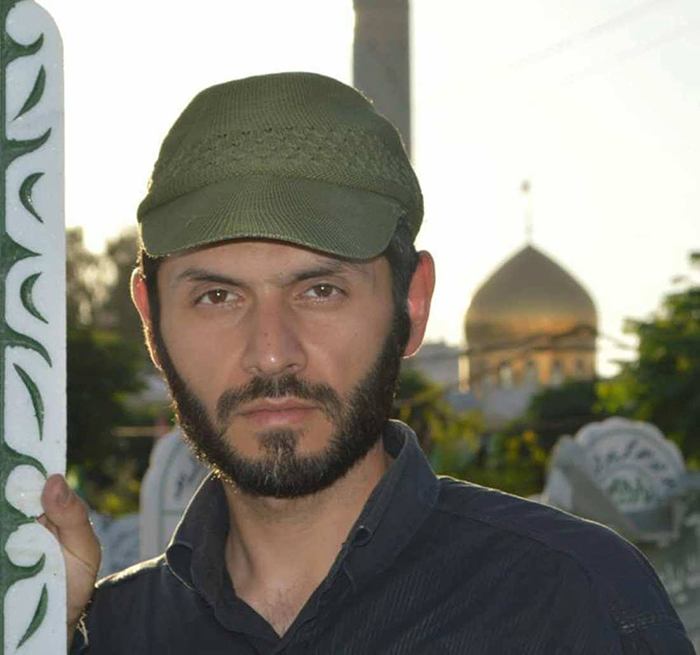



 Akhmet Makhmoudov
Akhmet MakhmoudovOn July 3, 2018, Elmar Veliyev, the governor of Genje, Azerbaijan’s second largest city, and his bodyguard were shot and wounded. Many Azeri citizens viewed Veliyev as the embodiment of oppression and corruption.
The attacker was immediately arrested and identified as Yunis Safarov, a 35-year-old native of Genje and a citizen of Russia. A few hours after his arrest, Safarov’s brutally tortured picture was leaked online by the Ilham Aliyev regime. It appears that the intention behind this move was to instill fear among the people.
At first the unelected regime tried to portray the act of violence as a personal issue, inventing a myth of Veliyev, who is known for his foul language when dealing with citizens, to have insulted Safarov’s sister. This tale quickly crumbled as Safarov’s wife issued a statement saying that her husband’s actions were motivated by Veliyev’s oppression of Azeri citizens and in particular the Islamic movement in Azerbaijan. Later, Safarov’s sister who lives abroad also denied the rumors of her alleged encounter with Veliyev.
Once the Aliyev regime admitted that Safarov was driven by socio-political motives, Azeri social media users within and outside of Azerbaijan declared Yunis Safarov a national hero, a phenomenon that the regime itself admitted.
The brutal regime did not anticipate this level of open support for political violence among Azeri citizens, thus it switched into the mode of trying to discredit Safarov by inventing tales of his ties to Iran, Russia, and his supposed role of fighting in Syria. While it is true that in 2016 Safarov and his family lived in Qum, the Syria part seems to be a hasty PR stunt by the Aliyev regime. Nevertheless, some popular Azeri Islamic news resources did state that Yunis Safarov participated in fighting against ISIS and other pro-al-Qaeda terrorists in Syria. His picture that was reportedly taken in the masjid of Sayyidah Zaynab (ra) in Damascus became the most iconic image among Azeri social media users during the first week of July.
While the Aliyev regime was busy trying to discredit Safarov, who has a law degree from a prestigious university in Moscow, the Azeri society was delivering a social earthquake unseen over the past decade. Social media users within the country were openly expressing support for Safarov and calling for those responsible for his torture to be brought to justice. Feeling the heat, the regime was forced to air a 29-second interview with Safarov, where his face was visibly “fixed” with makeup, to state that the injuries were sustained when he resisted arrest. Of course, no one bought this cheap PR stunt and calls on social-media to challenge the regime grew louder.
On July 10, hundreds of residents of Genje entered one of the city’s main squares to voice their opposition to the regime. As usual, the regime sent in its bullies to disperse the protestors. Unexpectedly, the crowd resisted and two high-ranking police officers were stabbed and killed. While it is not clear who killed the police officers and there are numerous contradictions in the regime’s version of the story, the details no longer matter. Azerbaijan has entered a new socio-political paradigm, one where it is no longer the regime alone that has the confidence to exercise political violence, but ordinary people as well.

Recent events in Genje are a strategic game changer in Azerbaijan’s political landscape, as the level of support for political violence has been underestimated by all political players and observers. Huge support for Safarov’s actions will probably trigger copycat actions by others seeking fame or the genuine belief that there is no other way of resisting the dictatorship.
In all societies, where instruments of socio-political participation are brutally suppressed by the regime, people are left with little choice but to resort to violence to secure their rights. The question is, how will the situation in Azerbaijan develop from now on? It is difficult to pinpoint specifics but the general parameters can already be observed.
After the attack on Veliyev, the fact that people were emboldened to hold an unsanctioned street protest in Genje and resist police brutality, says much about how the society is beginning to view itself and the ruling caste. Immediately after Veliyev was shot, the regime arrested famous bloggers and active social media users to contain the situation. Various organizations claim that between 70 to 100 people (the exact number is unknown) have been arrested in Azerbaijan during the period July 3 to 12.
The regime has not yet unleashed its security apparatus in full force. Many people are surprised to see this as a sign of fear on the part of the regime. It is the first time that the regime had to react to action against its grip over people, rather than people reacting to the regime’s brutality. This turn of events creates a catch-22 situation for the regime: respond brutally and overplay its hand or be balanced and risk emboldening its opponents.
As the regime is tirelessly trying to manufacture a foreign connection to the organic events in Genje, it is clear that Yunis Safarov is the first one to present a deadly challenge to the unelected regime in Azerbaijan in decades, our assessment is that he is not going to be the last.
